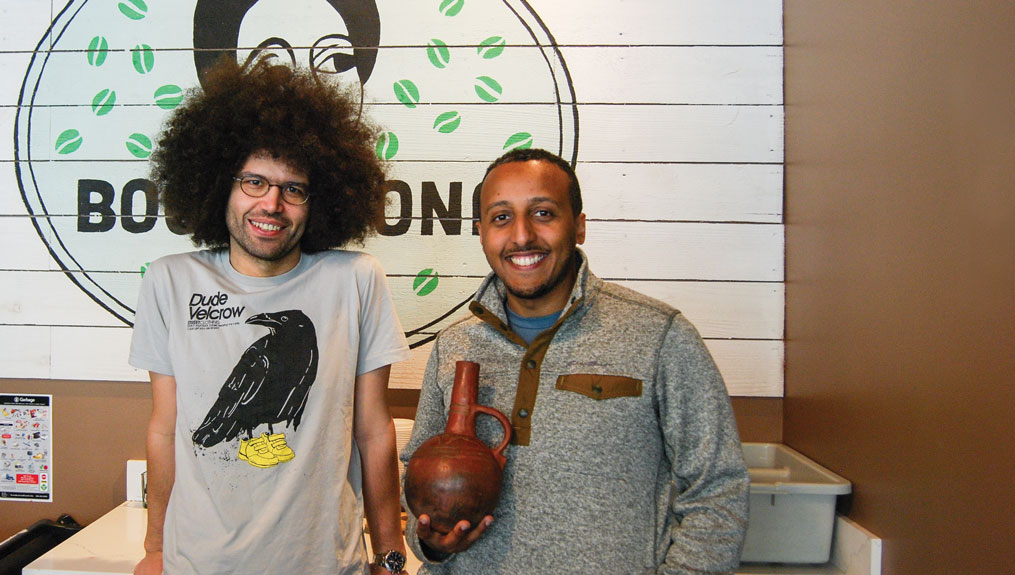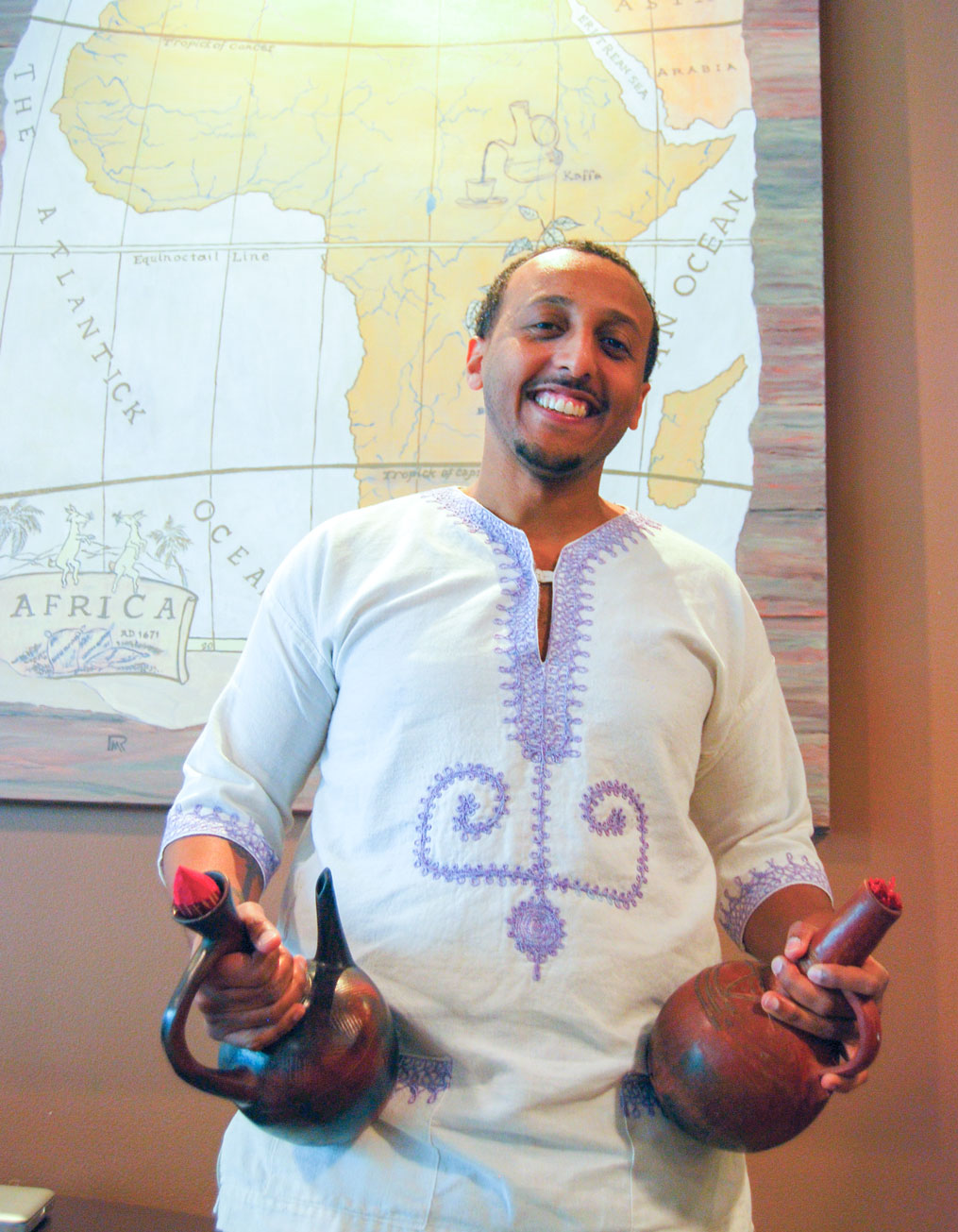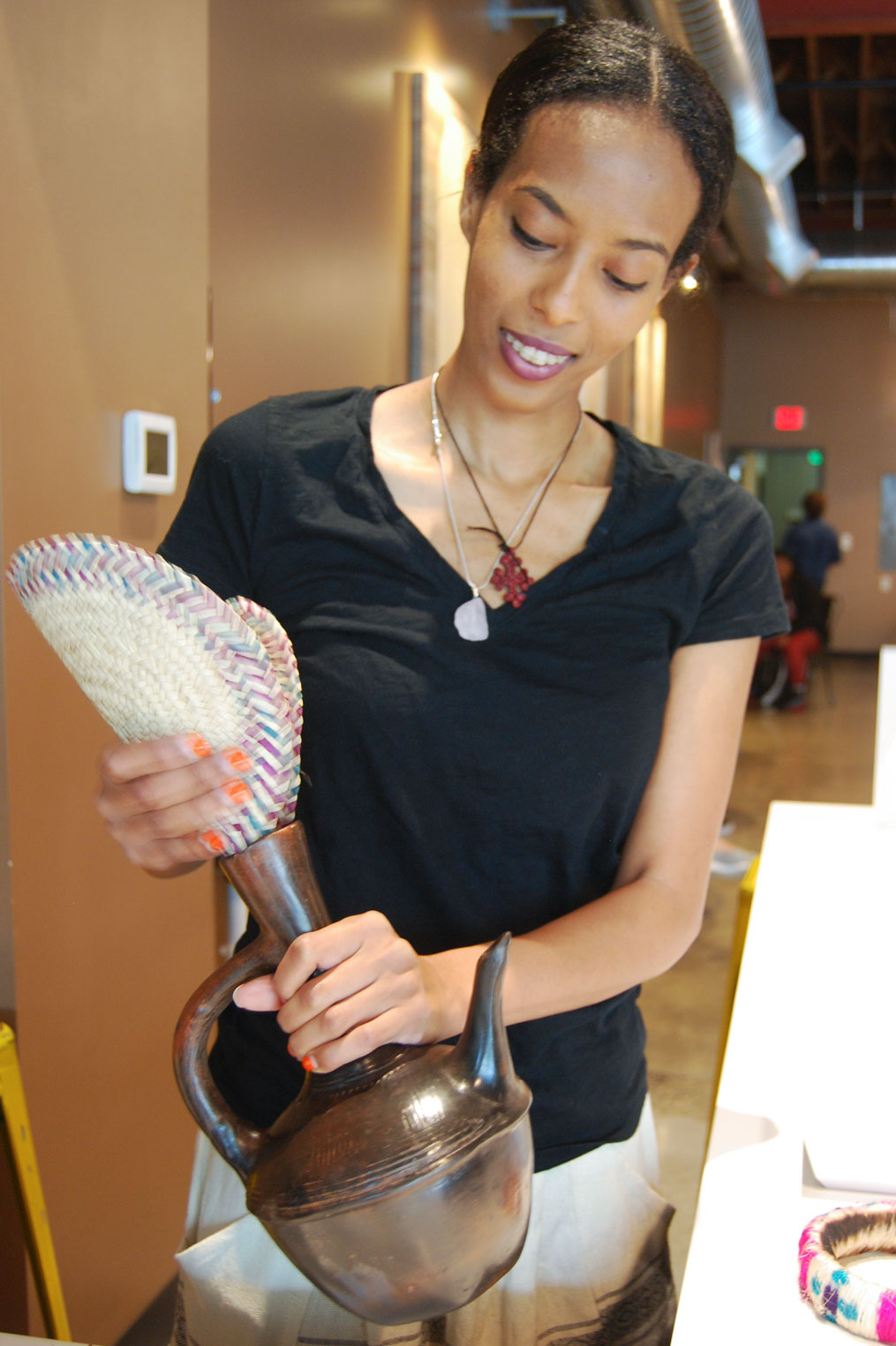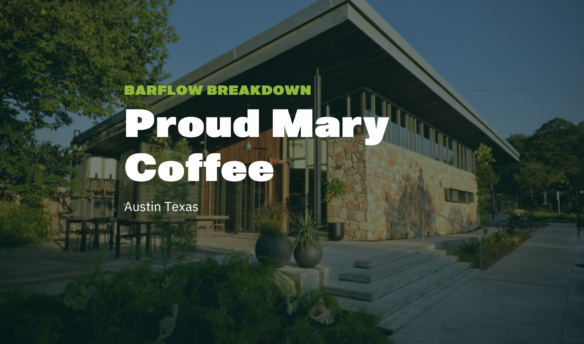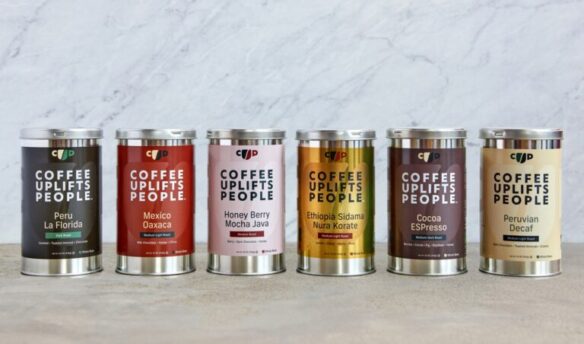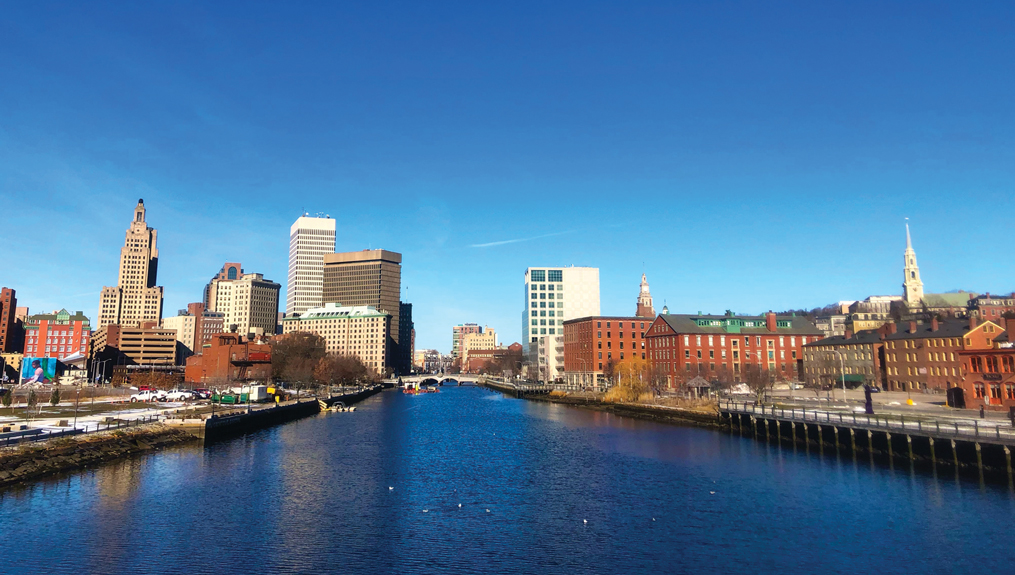Boon Boona Coffee owner Efrem Fesaha (right) and director of coffee, Ali Gulduren. All photos by Barbara Lloyd McMichael
[I]t’s noon on a Saturday, and things are abuzz at Boon Boona Coffee. As both “boon” and “boona” are East African terms for coffee, the name “Boon Boona Coffee” delivers triple-shot branding for this community gathering place in Renton, a suburban city just south of Seattle. Since opening this past January, the coffeehouse has attracted a large, diverse, and enthusiastic clientele.
Boon Boona founder and CEO Efrem Fesaha has equipped his new enterprise with the typical accoutrements of a modern café: coffee makers, coffee grinders, espresso machines, an enticing pastry case, and a gleaming roaster that presides smack dab in the middle of the space.
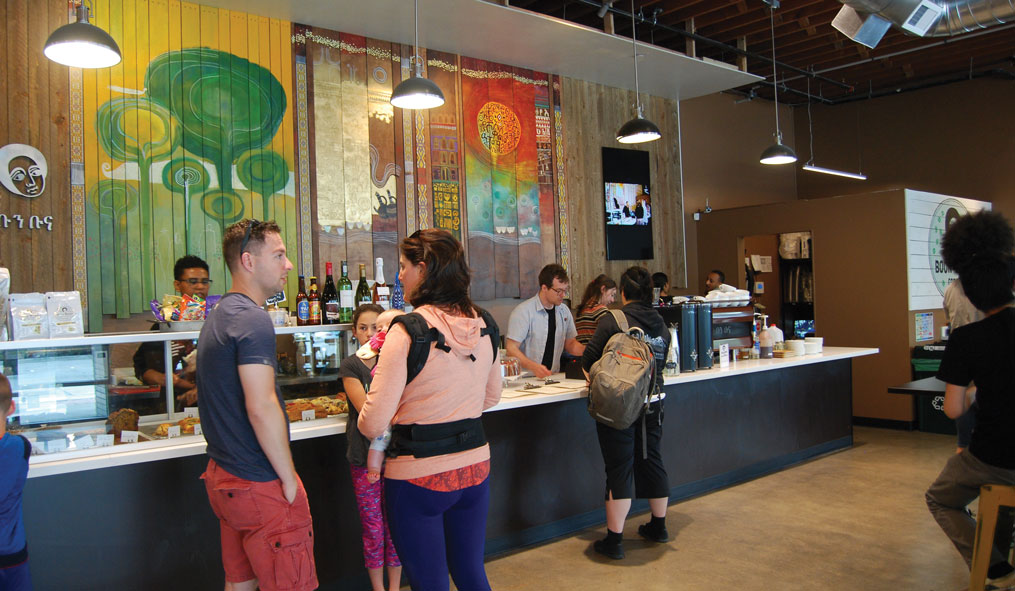
But Fesaha points out that all of the above have developed over just the last century or so. As the son of Eritrean immigrants, he is mindful of his roots and what he calls “the narrative of coffee.”
“Coffee has a much longer and deeper history,” he says, “and it’s important to speak to what that history was and what it looked like.”
To that end, Boon Boona focuses on coffee sourced from Africa, where coffee first originated.
Fesaha’s journey toward coffee entrepreneurship has been roundabout.
He was five when his dad was hired as a Boeing engineer and the family moved to the United States. As a kid growing up in Seattle, Fesaha navigated the hybrid life experienced by most children of immigrant families. At home, his parents spoke their native tongue, Tigrinya, and maintained some of the customs of their homeland. The East African community in Seattle is robust, and Fesaha recalls a “revolving door” of friends and family visiting, eating traditional food, and participating in the daily ritual of roasting beans and drinking coffee. There was reminiscing about village life back in Eritrea.
“They’d talk about the goats and sheep, about walking to school every day with their friends, and the family that was their joy,” says Fesaha. “It sounded better than Disneyland.”
Outside of the home, meanwhile, Fesaha was immersed in school and an American adolescence. After graduating from high school, he attended Washington State University, then landed back in Seattle to launch a career as a financial analyst, working for Amazon and Nordstrom.
But it wasn’t until he returned to Africa in 2011 as a grown man and spent several weeks in the family’s ancestral village in Eritrea that he began to understand what his parents had been talking about. It wasn’t Disneyland, exactly, but “the feeling that everyone is your cousin, your brother, your sister,” he recalls.
That was also the trip when a visit to a local café changed the trajectory of Fesaha’s life.
He’d walked into the café one morning and was enveloped in the heady aroma of roasted coffee beans. The proprietors did their own roasting onsite, and the sensory impact almost bowled Fesaha over. This was a far cry from the coffeehouses back in the U.S., where coffee was prepared with beans that had been pre-roasted and packaged elsewhere.
And that’s when an idea began to percolate.
Fesaha returned home. Seattle may be headquarters to Starbucks, the corporate Goliath of the coffee world, but now he felt that he had something of his own to contribute to the coffee business: the authenticity of single-origin, sustainably grown coffee beans from Africa.
“I wanted to have that shine,” he says.
He started out small, sourcing the best beans possible so that the transplanted East African community in Seattle could get a reliably delicious taste of home. Gradually, his wholesale business expanded to other markets around the U.S.
Next, he started roasting his beans in pop-up settings, getting feedback, and building a clientele.
Finally, last year, Fesaha signed a lease on a high-visibility, 2,600-square-foot corner retail space in Renton, and set about creating a café of his own. He continued doing pop-ups, even serving pour-overs from the front door of his new space during the build-out.
By the time Boon Boona Coffee opened its doors to the public in January, it already had a dedicated customer base.
Fesaha brought in Ali Gulduren as coffee manager, and the two have developed a principled approach that focuses on connecting with small, independent exporters to locate African farmers—many of them women—who engage in sustainable cultivation practices. Boon Boona serves coffee sourced from the Yirgacheffe region of Ethiopia and the Ngozi province in Burundi, among others.
To underscore that direct connection, every weekend Boon Boona offers customers a chance to participate in a traditional East African coffee ceremony. As business bustles in the main area of the store, Fesaha or his associate Rahel Goitom perform the ceremony behind a counter off to one side.
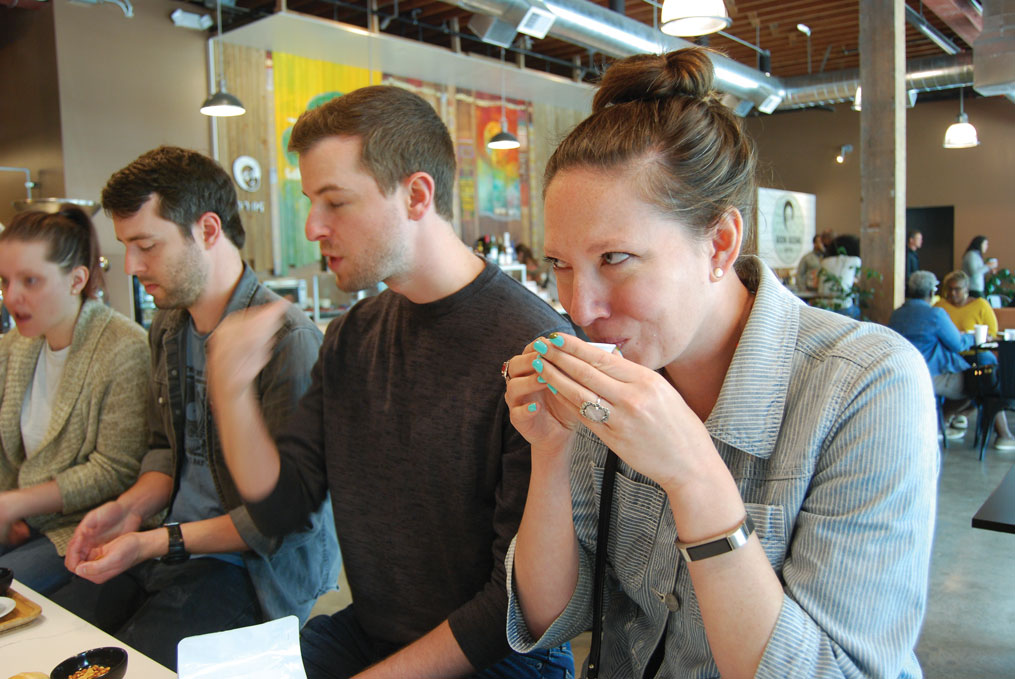
On a recent Saturday, Goitom is demonstrating to two couples who are perched on stools across the counter from her. She chats with her guests about the origin of the coffee while pouring the green beans into a pan and roasting them over an open flame. When the beans begin to sizzle and turn brown, she removes them from the heat and pours them onto a small, woven mat called a mesh er efet, holding it up and encouraging her visitors to waft the fragrance toward their noses.
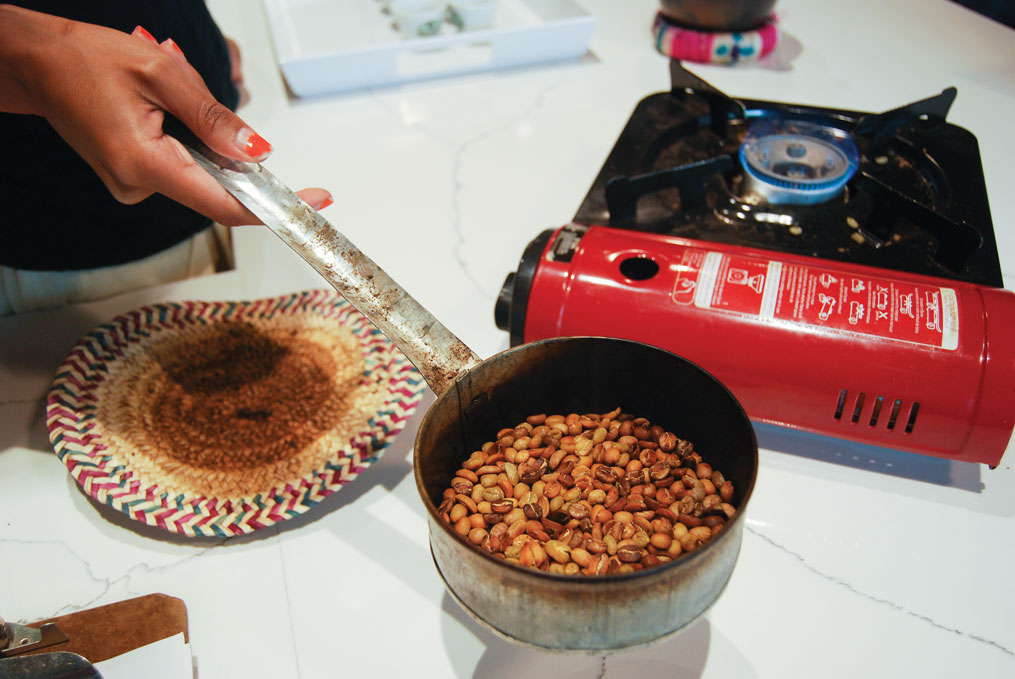
Next, the beans are ground. Traditionalists use a mortar and pestle; this affords more time for conversation, which is the point of the leisurely ceremony in the first place.
Once a medium coarse grind is achieved, it is poured into the jebena, a shapely vessel used for brewing in Ethiopian and Eritrean coffee ceremonies. The coffee is brewed several times before it is considered drinkable. Sometimes sugar, milk, or coins of ginger are added to the cup or brew.
The final flourish is the pour. In a practiced move, Goitom holds the jebena high and releases a slow stream that prevents any sediment from slipping into the small cups below. The coffee is served with a mildly sweet bread called dabo (in Ethiopia) and himbasha (in Eritrea), and a roasted barley and peanut mixture called kolo.
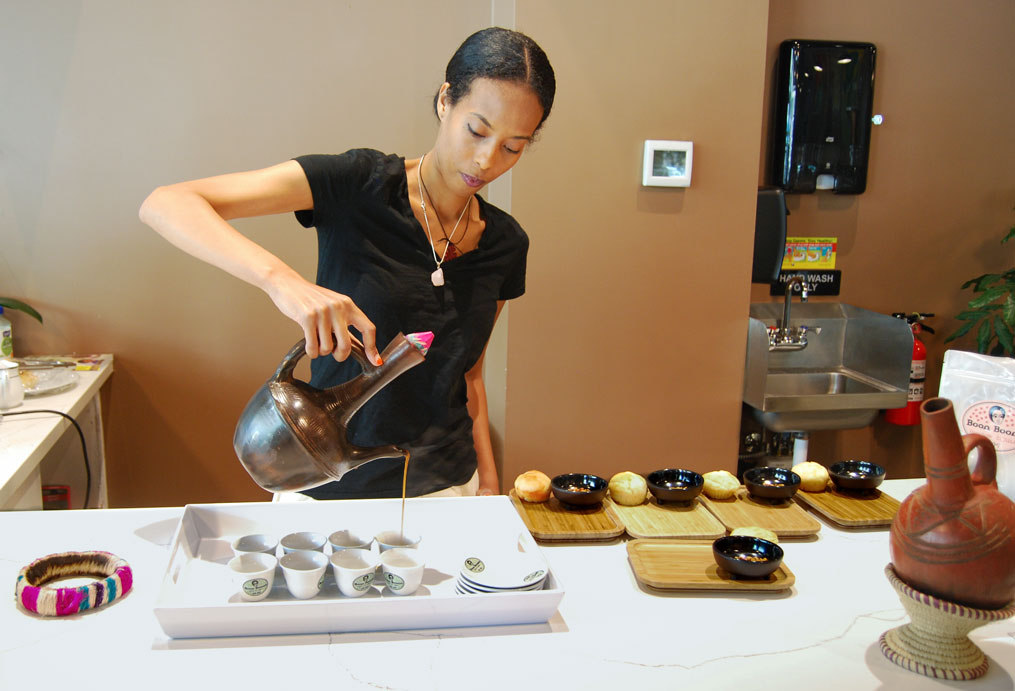
For those used to the grab-and-go culture at a typical café, this ceremony is a mesmerizing indulgence in the senses and a chance to reflect upon the source of the drink. You just might say that Boon Boona Coffee’s triple shot is coffee, culture, and connection.
Boon Boona Coffee
724 S 3rd St Renton, WA 98057 | 425-496-8618
boonboonacoffee.com | Open daily 7 a.m.–9 p.m.
East African coffee ceremonies are held every Saturday and Sunday. The hour-long ceremony is $10 per person. Book online at boonboonacoffee.com.


